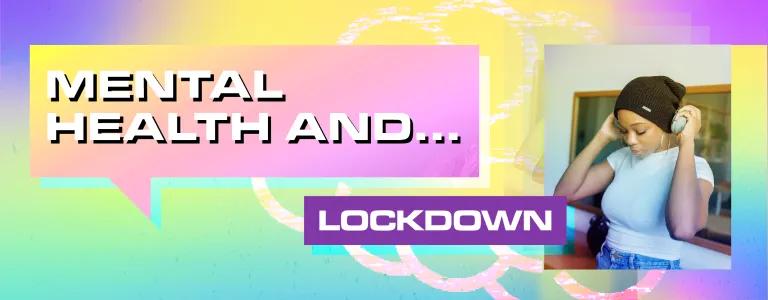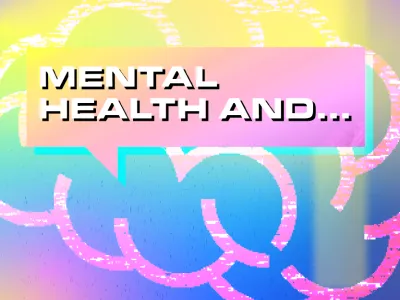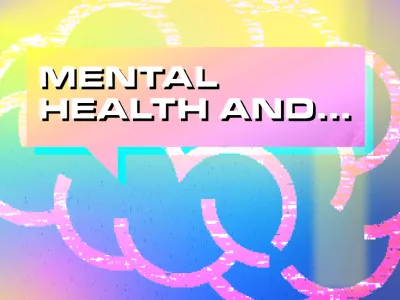
Mental Health And Lockdown
It’s been quite the year and a bit. And it’s now more essential than ever to look after your mental health as much as you can. The NSPCC and Childline are here with their advice on how to look after yourself as a new kind of normal starts to set in…
We know how tough the last year has been for young people - and many of you may have struggled with a variety of issues during this time which may have negatively impacted your mental health. From the closing of schools to isolation and worries about the virus, there has been a lot to deal with.
Since the start of April last year, Childline has delivered just over 73,000 counselling sessions where young people have discussed their mental and emotional health. The service has dealt with 37,784 mental health-related counselling sessions where a young person mentioned anxiety or stress, 19,830 where they discussed low mood and 11,007 where they talked about confidence issues. Mental health has remained the top reason young people have got in touch with Childline, with these three issues ranking as the most commonly discussed topics.

However, as we move out of the pandemic and as restrictions continue to ease, it is vital you remember that it’s okay if you are struggling, that there is support available to you, and there are things that you can do to help yourself feel better.
Be kind to yourself
There are lots of different ways you can support your mental health, from relaxation techniques and talking to others, to having fun and socialising with your friends.
It’s all about doing things just for you, to help you feel better. Learning to slow down your thoughts and change how you see things can help you to feel better and happier, help you to concentrate, study or work, and help find new ways to cope with situations.
Self-care can take time and practice. But the more you do it, the easier it can get. Here are some simple steps to try:
Check your basic needs: think about whether you’re hungry, thirsty or tired - and eat, drink or rest if you need to.
Focus on things right now: if you’re feeling overwhelmed or angry, take yourself out of the situation and focus on where you are in the present moment, by pausing for 30 seconds and feeling your feet firmly on the ground or your back against a chair.
Take a break: make time to listen to music, go for a walk or have a chat with family or friends.
Take deep breaths: take five deep breaths in through your nose and out through your mouth.
Be kind to other people: help yourself to feel proud or good by doing a random act of kindness like offering to wash up, make someone a cup of tea or get involved in volunteering.
Learn to say no: think about yourself before others – if someone is taking up a lot of your time and it's making you stressed or upset, let them know when you need a break.

Play and socialise
One thing that young people of all ages have missed out on in the last year which is central to good mental health, is play. You may associate play with younger children – but it could involve ball games in the park with your friends, board games, quizzes with your friends, or even showing off your best dance moves to your favourite songs.
Not only is it a great way to have fun, relax and get physical exercise but it is also central to good mental health.
After the year we’ve all had and with many of you having been stuck indoors for months on end, we could all do with a bit more play! The NSPCC is encouraging families around the UK to get playing this summer by signing up to take part in Childhood Day on the 11th June.

Visit the Childline website
Childline also has lots of activities that can help support your mental health and well-being. Some examples include:
The Art Box is a space where you can write or draw about anything you wish. If you are feeling stressed or overwhelmed, getting creative is a great way to help you feel calmer and it can also help you make sense of your thoughts and feelings. Even if you don’t feel you are good at art, it’s important to remember that this doesn’t matter and the Art Box is there for all.
The balloon game is a simple tool where you can blow up a virtual balloon, label it with a worry and then watch it float away. This can help you feel calmer and more in control of your feelings, as you visualise them literally moving away from you.
The Calm Zone has lots of different tools that can be helpful if you are feeling anxious, sad or scared. This includes short yoga routines, breathing exercises, puzzles and activities that can help you express yourself.
For further support, it’s vital to remember that if you are struggling with your mental health and well-being, our Childline counsellors are here to support you no matter what your worry is. You can call on 0800 1111 or get in touch via our online 1-2-1 chat service.




